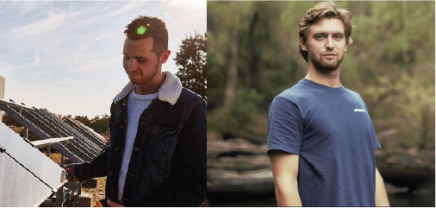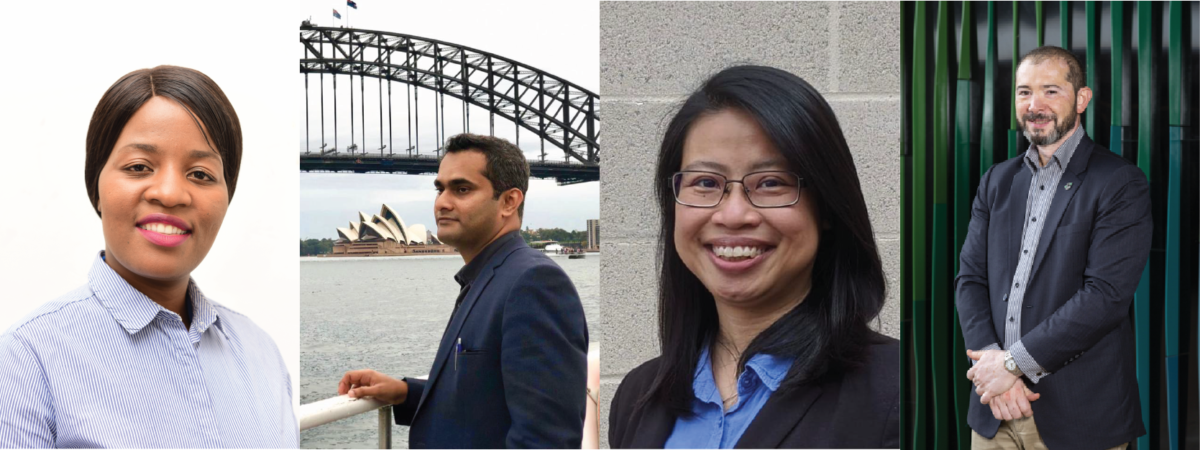30 July 2020 – As the world reels from the human and economic devastation of COVID-19, eighteen Australian startups are maintaining their focus on our other existential threat, climate change.
These entrepreneurs have won a coveted place in the highly competitive pre-accelerator program, ClimateLaunchpad, which also doubles as the world’s biggest cleantech and green business ideas competition. While their pathways into the competition was varied: some had a breakthrough technology and were looking for pathways to commercialise it, some had a sketch of a business idea on the back of a napkin, and some had already established themselves as an early stage start-up, they all have one thing in common: they are going to use their entrepreneurial spirit, their technical know-how and their global ambition towards addressing the biggest challenge of our lifetime: solving climate change.
“If you are not part of the solution, you will be part of the problem,” says Natalie Hurtado from ARTEH, a startup focused on helping SMEs measure their performance towards Paris targets. “I believe that climate change is the most emergent risk that humanity is facing, and I want to be in the group of people contributing to reduce such risk and help those most threatened by them.”
Like Hurtado, the team at Economical Energy felt compelled to act as the climate emergency became more and more urgent. “We realised that we were fairly capable engineers that loved solving problems. The appeal of working to solve one of the biggest challenges of our time was too strong to ignore.”

While all the ClimateLaunchpad entrepreneurs understand the urgency of tackling climate change, they aren’t making a trade-off between their values and their profitability. Bloomberg has said that the smart cities market is expected to reach US$250 billion by 2025, good news for people like Thomas Gooch, founder of Office of Planetary Observations, a start-up combatting urban heat island effect by providing easily accessible environmental analytics to city planners. “ClimateLaunchpad provides a great vehicle to take a nature-based business into the market, contributing towards change in the world.”
Ramon Skåne and Hendrik Gildenhuys, of Geo-Fly, have strong ambition for their start-up. After examing the product’s potential, they estimate that once at scale, Geo-Fly could produce over 900,000 tonnes of concrete per year – around 12% of Western Australia’s concrete production. “Ideally, we want to go as far with the idea and production as possible to make Geo-Fly concrete the go-to product that stands out to fight climate change and make W.A. a better place to live,” said Skåne.

And it’s a good time to be getting into the climate solutions game; despite the pandemic, 2020 has been a landmark year for investor action on climate change, with many investors recognizing the importance of immediate action, fearing a replication of the economic fallout of the pandemic if the world fails to halt climate change.
However, getting into a hard-nosed business mindset has been an adjustment for some participants. Tina Phiri, of Recyslag, pointed to the program’s value in

helping researchers get into the mind of their potential customers, rather than focusing on the ingenuity of their product. “[ClimateLaunchpad] has been crucial in identifying a commercialisation mindset… we found that we were too keen on the ‘solution’ than the business ecosystem itself. This practice has helped identify the missing link.”
Johnny Wapstra, from Seed 2 Diesel agrees, “Focusing on clear concise communications has always been difficult for me. As an engineer I tend to get excited with the science and process.”
But that’s just where ClimateLaunchpad steps in. Hans Westerhof, ClimateLaunchpad trainer, says, “it is completely normal to be focused on your own idea and creation, but what you actually need to do is understand the perspective of your potential customer. Your solution might not necessarily have much to do with the functionalities of the product you’re offering. During Boot Camp we try to get our participants out of their own tunnel and get them to crawl in the skin of their customer.”
Behind the scenes, in the weeks leading up to bootcamp, the first phase of the ClimateLaunchpad journey, the entire program had to be reimagined to be suitable for the online context. “We knew that the quality of the content of the bootcamp and our amazing trainer would speak for itself, regardless of how it was delivered,” said Jessica Hyne, one of the organisers of ClimateLaunchpad in Australia. “But at the same time, it was a huge experiment – we just had to take the plunge and hope that it worked.”
However, Wapstra says he’s wouldn’t have had access to the program any other way. “Being located in regional Australia, having the workshops and webinars moved to an on-line environment has given me access that I’ve never had before,” he said.
The ClimateLaunchpad teams are moving on to their semi-final pitch nights ahead of the National Finals on August 26th. Tickets for the National Final are available here.
Meet the ClimateLaunchpad Australia 2020 cohort
ARTEH: Climate-related risk assessments for SMEs, based on machine learning insights and expert insights.
Bloom Impact Investing: An online community and web application that makes it easy, financially and emotionally rewarding to be an impact investor.
CoHEATsion: CoHEATsion leveraging a volunteer network to check on vulnerable citizens during adverse weather conditions such as during heat waves, or incidences of poor air quality.
Economical Energy: Economical Energy’s energy storage technology improves on pumped hydroelectricity – without any geographical requirements.
ElevenStore: A battery composed of safe, sustainable, environmentally-friendly, earth-abundant and cheap raw materials.
Geo-Fly: A Circular-economy industrial process to create geopolymer cement from Collie fly-ash and demolition wastes to produce a sustainable concrete product.
Lionics Energy: Battery electrolyte technology allows for the next generation of high energy-density lithium-based batteries to operate where Li-ion batteries perform poorly.
Localcycle: A local organic waste management service to divert organic waste from entering landfill and turn it into added value products.
Nanopesticides: Using nanopesticides to carry pesticides to target pests, weeds, and pathogenic organism in the soil, before naturally breaking down.
Office of Planetary Observations: A web tool providing environmental analytics from satellite in near real time for benchmarking or ongoing monitoring of natural indices for council, city planners & developers.
Power Ring: Power Ring will serve as a renewable power platform to power IoT networks perpetually using ambient renewable energy.
Recyslag: Removing, processing and extracting residual cobalt and copper from copper slag waste.
Remanufactured Batteries: Creating a model for selecting and reusing end of life lithium-ion batteries to create an energy storage battery pack for secondary applications.
Seed 2 Diesel: A facility to process oilseed and convert it into cheaper and cleaner diesel fuel to sell to farmers for use in agricultural equipment, as well as on-sell the meal to livestock producers.
SLiB Recycling: Recycling and purifying the metals in spent lithium batteries using flexible ion exchange to produce precursor materials for new batteries.
Solid Pumped Hydro Energy Storage (SPHES): Distributed gravitational storage using small elevations, providing energy storage at an industrial scale at lower cost and climate impact.
Windpow: A Vertical-Axis Turbine system that can convert the wind energy into electricity for household energy needs.


